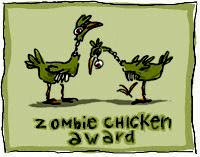I had my knuckles rapped by Lewis, the student who is the sole instigator of
The Thought Report mentioned in my last blog. I erroneously stated that there were19 other students involved in the project and that the date of publication would be 5th December which is the article deadline. The actual date of publication is sheduled for 13th December. Sorry for that.
I have also asked Lewis how he intends to gather the Charity donations. I'm assuming that he will use an organisation like Just Giving. I can't see any mention of this on his site, but.............I am not good at following instructions so can anyone else tell me how this works? Have I missed something?
Now on to my rant! Public sector workers!!
Let me tell you a story of how an private sector company works. In December 2007 two major credit card companies took their payment from our bank six days earlier than usual. They were entitled to do this, but it took us completely by surprise. Within weeks we had a double whammy - clients were delaying payments. We went from having six weeks operational costs in the bank to needing an overdraft. And this was months before the "credit crunch" was being publicly talked about! We were very concerned and immediately froze recruitment and purchases while the situation was assessed.
Our first step was to reduce management salaries by 20%. That helped but it still wasn't enough and by the autumn things had got so bad that we were having to plan redundancies. It was one of our bleakest, blackest moments but one that we knew had to be faced. How do you tell your loyal and committed workforce that you have to lay some of them off? People that have worked beside you for years and, on the strength of their jobs, taken on financial commitments.
It came to the dreaded day when we were to make the announcement. As fate would have it the previous evening we won a Business of the Year award! During the night I knew that I didn't have it in my heart to take this step without one final throw of the dice. I spoke to my fellow directors and we decided to lay the facts out, honestly acknowledge that we were facing redundancies, but offer one final solution - a temporary, across the board, 20% wage cut or reduction in hours.
The staff were brilliant. Client budgets had been cut, but volumes were growing and they already knew they were working harder to only to stand still. Things had to change and they had been anticipating redundancies. When we threw this lifeline it was grabbed with both hands. No-one wanted to be without work.
It was agreed in open forum that everyone would be interviewed in confidence and anyone suffering extreme hardship would continue as normal but the survival of the company depended on the majority voluntarily selecting one of the two alternatives. Thankfully most were able to pitch in.
We were eventually able to restore the Status Que but still continue to have a wage, recruitment and spending freeze. In other words, we watch things very carefully.
Around this time a health worker that I know was complaining bitterly that they were only getting a 2% wage rise. He was banging on about the need to take action. It was at a social gathering and I behaved myself and managed to keep my mouth shut. It's unreal.
To change the subject ever so slightly, but not a lot, this morning they were saying that statistically, due to lack of cover, you are 10% more likely to die if you are admitted to hospital at the weekend. The TV doctor hit the nail on the head. He said that the problem could easily be solved if doctors were paid less and there were more of them. Boom, boom!
In a nutshell, public sector workers in general and health workers in particular have massively swelled in numbers and enjoyed high wage rises over the past decade, outstripping private sector workers. And now they strike? Get real! It wouldn't be so bad if efficiency had improved. Quite the reverse, some of them seem to actually think they are demi gods. .
This inequality has to be addressed if we are to avoid serious conflict. My hard earned taxes are paying for their militancy and I'm fed up with it.
We were lucky, but we bought about our own "luck" by being honest. And again, "luckily!" our staff believed us because they trusted us. Who is to be believed and trusted now? You certainly can't believe the politicians or the banks. This is the crux of the matter isn't it? Dear God, where do we go from here?
 A few weeks ago I wrote about an article to be featured in Woman's Weekly about my around the world without flying Oz-Bus trip . Well here it is and for those of you who can't buy the magazine here is what it says. That's Davy and me in the bottom right hand corner!
A few weeks ago I wrote about an article to be featured in Woman's Weekly about my around the world without flying Oz-Bus trip . Well here it is and for those of you who can't buy the magazine here is what it says. That's Davy and me in the bottom right hand corner!





























